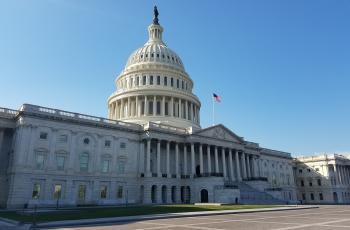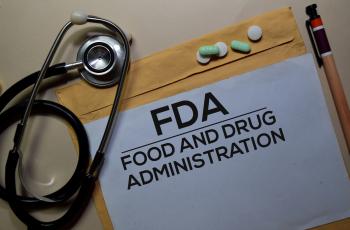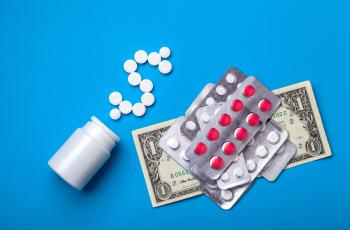A Watershed Moment for Diabetes & Obesity Prevention as Cities Vote on the Soda Tax
Two years ago, San Francisco, California, and Berkeley, California, both had soda taxes on their ballots.
The 2014 soda tax effort lost in San Francisco. The nature of the tax meant that 2/3 of the popular vote was needed for it to pass. This movement came a long way but ultimately lost, despite having a 55% popular majority.
By comparison, a highly successful campaign in Berkeley led 75% of voters to support their soda tax, even though Berkeley’s vote only required a simple majority. The results have been impressive, even for a community that was already focused on health. Sugar-sweetened beverage consumption fell by as much as 21% in some neighborhoods during the tax’s first year, while citywide water consumption increased by 63% compared to 19% in neighboring cities. Revenue from the tax, an estimated $1.2 million, went toward school nutrition programs, parks and recreation improvement, and other public health initiatives.
On this Election Day, voters here in the Bay Area will decide on Proposition V in San Francisco and Measure HH in Oakland, both one-cent-per-ounce taxes on sugar-sweetened beverages – the same amount as Berkeley’s tax. Albany, California, and Boulder, Colorado, also have soda taxes on their ballots, and the government of Cook County, Illinois, (which includes the city of Chicago) has recently proposed a similar measure to be decided by local officials rather than popular vote. Very notably, Philadelphia’s City Council approved a soda tax earlier this year, which is expected to generate over $90 million in annual revenue when it takes effect in January.
The San Francisco and Oakland campaigns have gained a good deal of support from prominent organizations, including the American Heart Association, the American Diabetes Association, the California Medical Association, the San Francisco Chronicle, and Healthy Food America.
Opposition, however, is fierce. Counter-campaigns in San Francisco and Oakland, both funded largely by the American Beverage Association California PAC, are labeling the measure a “grocery tax,” arguing that it will burden local grocers, especially in lower-income areas.
While it is of course critical to consider the consequences of any new tax on low-income families and local grocers, it seems unlikely that this proposed tax will raise the price of groceries. According to Oakland’s Measure HH website, the tax affects soda companies’ distributors who contract with beverage makers. Notably, small businesses will be exempt from the Oakland tax.
Others argue more broadly that the soda tax would function as a regressive tax, hurting low-income families while causing little more than a nuisance to wealthier residents. I think it’s safe to say, however, that regardless of income level, soda is not a dietary necessity. It has little nutritional value, and its consumption has been associated with life-threatening diseases including type 2 diabetes, obesity, and heart disease. In fact, a single 12-ounce can of Coca-Cola contains 39 grams of sugar, 108% of the daily limit for men (36 grams) and 162% of that for women (24 grams) recommended by the American Heart Association.
Opponents have also argued that because the soda tax revenue will be directed to general city funds, it might not actually be used for public health initiatives. In other words, they claim that local governments are raising taxes under the premise of promoting health, but then spending the money on other things. To account for this concern, both ballot measures establish committees to advise the city councils on how to use the revenue to address public health needs. Further, none of these concerns have been a problem in Berkeley since the soda tax was enacted.
Everyone at The diaTribe Foundation believe that the soda tax should be passed due to its potential to (i) decrease soda consumption and its associated health risks; (ii) increase awareness about diabetes and obesity prevention, particularly among vulnerable populations; and (iii) raise money for community programs that promote health and nutrition. While soda isn’t the only reason why Americans consume excess sugar, sugar-sweetened beverages are the largest source of added sugar in American diets. Further, people who average 1-2 servings or more of sugar-sweetened beverages per day have a 26% higher risk of developing type 2 diabetes than people who consume less than 1 serving per month.
In addition, type 2 diabetes disproportionately affects low-income black and Latino populations, the same communities that soda companies target with their marketing. Children are also targeted heavily by these beverage ads, and it is predicted that 1 in 3 children will develop diabetes in their lifetime if the current rate of sugar-sweetened beverage consumption continues. For black and Latino children, that number jumps to 1 out of every 2.
I recently had the chance to meet San Francisco Mayor Ed Lee, who has been incredibly inspiring in redoubling efforts to make San Francisco as healthy as possible. He made clear that the city must take an active role in creating a healthy environment, even if it raises the prices of certain unhealthy products. Rather than fighting to keep the prices of sugar-sweetened beverages low, we should work to increase the availability and affordability of healthier food. Passing local soda taxes, especially in cities like Oakland, San Francisco, Philadelphia, and Chicago, could lead to a broader movement in this regard.
Three of us from The diaTribe Foundation spoke in support of the soda tax at the Oakland city council meeting last spring, where Measure HH was subsequently approved for the ballot. The measure moved forward without skipping a beat and we are proud to have been involved in this momentous decision. We also spoke at two town hall meetings in San Francisco during the summer, and volunteered at the campaign’s phone banks. If you are interested in donating or volunteering during the final stretch of the campaign, visit the San Francisco and Oakland websites for more information on how to help. A BUNCH of us will be there tonight, tomorrow, this weekend, and on Election Day itself so please come join us! We are very hopeful for all of the cities that are promoting this measure, whether here in California or in Illinois and Colorado. And we’re so thankful to Berkeley for being such a pioneer and for Philadelphia for joining in spades.


